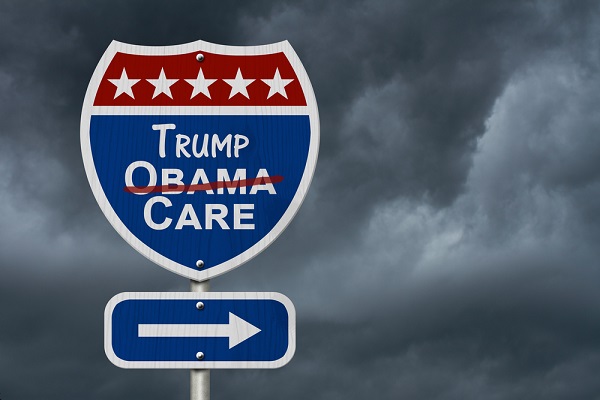 The so-called "short term" health plans would provide coverage for up to a year, much longer than required for the supposed purpose of helping people transition from one insurer to another. (Photo: Shutterstock)
The so-called "short term" health plans would provide coverage for up to a year, much longer than required for the supposed purpose of helping people transition from one insurer to another. (Photo: Shutterstock)
The Trump administration's latest strike on the Affordable Care Act is to expand the availability of so-called short-term health insurance. Don't be misled by the seeming modesty of this idea. It's an impressive combination of bad policy and bad faith.
First, these aren't short-term plans at all. They'd provide coverage for up to a year, much longer than required for the supposed purpose of helping people transition from one insurer to another. Second, the idea will drive up premiums for ordinary health insurance. Third, and most important, it undermines the ACA's worthy ambition to see that all Americans can get decent health insurance.
Recommended For You
Unfortunately, the administration can make this change without getting a law passed. One hopes, therefore, that the plan will be struck down by the courts or countered by state governments.
Adequate health insurance for all means making sure that people who buy individual policies get coverage similar to that provided by employer-sponsored plans. They shouldn't be turned away or charged higher prices for being already sick. And their policies should cover the care they need – including prescription drugs, mental health care, contraception and emergency-room treatment.
The administration's elongated short-term plans would not be required to meet those ACA standards. Buyers would pay lower premiums, but in return run the risk of having less coverage than they expect when medical needs arise. Meanwhile, they would have taken themselves out of the regular-insurance risk pool. People choosing to do that will probably be healthier than average — which will raise premiums for everyone else.
This change is only one of several ways the Trump administration has sought to lure healthy people out of the ACA marketplace. It has expanded and deregulated association health plans, which also need not cover essential health benefits. And it has done away with the tax penalty for going without insurance, encouraging people to get by with no coverage at all.
Even taken together, these measures do not amount to a repeal of Obamacare. The law still ensures that people with low incomes qualify for generous premium subsidies. And Medicaid continues to cover an expanded population in 32 states (and counting). Nonetheless, these so-called reforms are a concerted attack on the ACA's foundations.
If the courts fail to stop the change to short-term health insurance, states ought to step in, and should plan for this immediately by strengthening their own regulations. They should place their own time limits on short-term policies, and demand that such plans cover the health care people need.
Sadly, people in states that won't provide this protection will be left waiting for leaders in Washington who will.
To contact the senior editor responsible for Bloomberg View's editorials: David Shipley at [email protected]. For more columns from Bloomberg View, visit http://www.bloomberg.com/view.
© 2025 ALM Global, LLC, All Rights Reserved. Request academic re-use from www.copyright.com. All other uses, submit a request to [email protected]. For more information visit Asset & Logo Licensing.







